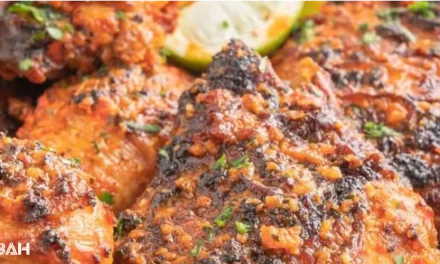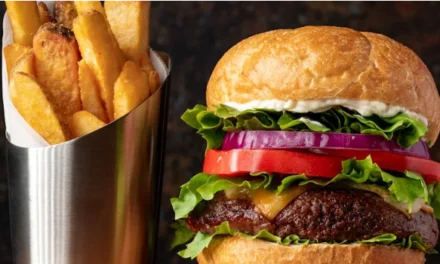Crispy fried chicken, sweet spaghetti, and mouthwatering burgers. To fans, these are the delicious tastes of Jollibee, the Philippines’ massively popular fast food chain.
With over 1,300 stores across Southeast Asia, the Middle East, UK, Italy, and North America, Jollibee serves up comforting Filipino classics to a global clientele. The brand continues its rapid expansion into new regions aiming to become one of the top 5 restaurant companies in the world.
But as Jollibee spreads its wings further into Muslim-majority nations, it faces a major question: is Jollibee halal?
Let’s explore what makes food permissible under Islamic law and examine the hazy halal certification status of this iconic Filipino brand.
What Makes Food Halal or Haram?
The Arabic word “halal” means “permissible” in English. Halal foods comply with Islamic dietary guidelines rooted in the Quran and teachings of the prophet Muhammad (pbuh). Meanwhile, “haram” refers to prohibited foods that Muslims must avoid.
According to these centuries-old principles, here are the key requirements that deem food halal or haram for observant Muslims:
Permitted Food Sources
-
Meat must derive from animals slaughtered via zabihah – an approved Islamic ritual slaughter method involving a single cut across the throat. Pork is strictly haram.
-
Dairy products like cheese or yogurt must come from properly slaughtered cows, sheep, or goats.
-
Seafood is universally halal as long as it was caught alive from the sea or river. All fish and shellfish are permitted.
-
Fruits, vegetables, grains, nuts and plants are halal so long as they are not intoxicating or hazardous to health. Alcohol is completely forbidden.
Preparation and Handling Requirements
-
Utensils, equipment, prep surfaces must be thoroughly cleaned between handling halal and non-halal foods to prevent cross-contamination.
-
Meat and dairy products should not be mixed, cooked, served or stored together.
-
Food must not contain any blood residue. Meat should be fully drained.
-
Only permitted food additives like spices, flavors, coloring can be used. No pork-derived or alcohol-based ingredients.
-
Alcohol cannot be used in cooking, serving or as an ingredient.
Additionally, processed packaged foods require halal certification from approved Islamic authorities to verify their compliance. Muslim consumers look for these certifications out of religious obligation.
Does Jollibee Restaurant Have Universal Halal Certification?
Jollibee does not currently have blanket halal certification covering all its locations around the world. The brand has no global policy mandating halal compliance across the entire operation.
However, due to growing Muslim populations in countries where Jollibee operates, some individual overseas franchises have obtained local halal certification to cater to this significant market segment.
For example, Jollibee stores in Saudi Arabia, UAE, Malaysia, Hong Kong, UK, Italy, and select branches in Mindanao region of the Philippines have active halal certification from authorized bodies to attract Muslim spending power in those areas.
But the certification status remains location-specific. Each franchise makes the decision independently based on local demand. No single universal certification spans Jollibee’s entire supply chain and menu worldwide.
Can Muslims Safely Eat at Uncertified Jollibee Locations?
With no consistent corporate-wide halal compliance, Muslim consumers wishing to strictly adhere to religious dietary laws face potential risks dining at uncertified Jollibee restaurants. However, some menu items may align with halal standards if carefully prepared in a compliant manner.
Let’s analyze some popular options on the Jollibee menu and their likelihood to satisfy Muslim requirements when ordered from an uncertified non-halal branch:
Chicken Dishes
Crispy fried chicken is the crown jewel of Jollibee’s menu. Their famous Chickenjoy – juicy chicken pieces bathed in a secret marinade then fried to golden perfection – is many Filipino customers’ favorite dish. It’s also likely one of the safer halal options if properly sourced and cooked.
Chicken meat from birds slaughtered in a permissible zabihah manner should meet Muslim standards. Some uncertified Jollibee locations may use acceptable halal chicken in preparing Chickenjoy and other menu items like Chicken Barbecue, Chicken Sandwich, and Chicken Spaghetti.
However, the risk of cross-contamination from handling non-zabihah chicken remains high in uncertified kitchens. And chicken dishes often include non-halal ingredients like pork fat in the frying oil or bacon bits in the gravy. Without clear halal certification, Muslim diners should ask detailed questions about chicken preparation and ingredients before consuming.
Beef Dishes
Beef is universally halal when slaughtered according to zabihah guidelines. Jollibee serves hamburgers like Yumburger and Jolly Crispy Burger using beef patties. If sourced from properly slaughtered cows, these burgers should comply with halal requirements.
But as with chicken, cross-contamination with haram ingredients can occur easily in unsanctioned kitchens. The same grills used for pork sausage or bacon might also cook the hamburger meat. And burger buns may contain alcohol-based additives or beef tallow from improper slaughter. Observant Muslims should thoroughly question staff about beef handling procedures and ingredients when dining uncertified.
Seafood Dishes
Seafood like clams, shrimp, fish, squid and crabs are inherently halal no matter how they were caught or prepared. As long as no other haram ingredients are added, Jollibee menu items like Crispy Bangus, Shanghai Rice Bowl, or Amazing Aloha Yumburger should meet Muslim needs. This makes seafood dishes a safer bet.
Vegetable & Rice Dishes
On their own, rice and vegetable-based menu items like Jolly Spaghetti, Burger Steak, or Palabok Fiesta Noodles most likely conform to halal restrictions provided no prohibited meats, alcohol or other ingredients are added.
But cross-contamination with haram foods remains probable unless proper sanitation procedures between halal and non-halal prep are followed meticulously. Some trace amounts of allergens like pork or alcohol from improperly cleaned surfaces or utensils may still find their way into rice and vegetable dishes not prepared in halal conditions.
Beverages
Drinks like sodas, juice, coffee, and tea served at Jollibee will generally meet Muslim dietary needs, but hot chocolate mixes may contain traces of pork by-products. Observant Muslims should verify ingredients.
And while the beverages themselves may be halal, their preparation in facilities also handling haram drinks creates potential for cross-contamination through improperly sanitized equipment.
Desserts & Sweets
Some sweets and desserts like cakes, ice cream or hot pies may contain traces of alcohol, pork-based gelatin or other non-halal additives. Halal-observant Muslims would need to inquire carefully about each menu item’s ingredients before consuming.
As this analysis shows, while select dishes at uncertified Jollibee restaurants may align with Islamic law if carefully handled, the risk of cross-contamination combined with uncertified ingredients makes adherence to strict halal standards difficult for practicing Muslims without clear certification.
The Future of Halal Options at Jollibee Chicken
As Jollibee continues its ambitious worldwide expansion, pursuing full halal compliance could provide a major competitive advantage over other fast food giants like McDonald’s, KFC or Burger King.
With spending among global Muslim consumers on food projected to grow to $1.9 trillion by 2023, obtaining halal certification across all locations could allow Jollibee to tap into a rapidly increasing pool of customers. Already chains like McDonald’s are waking up to the profit potential of the halal market.
Adopting a consistent halal certification program could significantly boost Jollibee’s brand perception and open doors to lucrative new predominantly Muslim markets. The chain already ranks as the third largest Asian restaurant company behind giants Yum! Brands (KFC, Pizza Hut, Taco Bell) and McDonald’s. Halal branding could help take it to the next level.
But pursuing a full halal commitment also carries risks. It requires revamping supply chains, imposing stringent sourcing and handling policies, and strictly separating halal and non-halal ingredients. Training staff in proper protocols adds cost. Altering recipes or removing popular pork dishes to gain certification risks alienating existing loyal patrons.
For example, when McDonald’s eliminated pork items from certain Muslim-majority markets, some non-Muslim customers were dismayed at losing menu favorites like pork burgers. Jollibee would need to weigh these concerns before divesting from pork which currently features in popular dishes like Longganisa Rice Meals or Sweet Pork BBQ.
Still, for a company bullish on global domination like Jollibee, the sheer size of the young and fast-growing Muslim consumer demographic presents an undeniable opportunity. With enough brand investment and carefully strategic menu adjustments, Jollibee could potentially capture vast new halal markets without isolating current non-halal fans.
Conclusion
For now, Jollibee’s halal status remains fluid and inconsistent. The brand lacks an overarching halal certification policy. Individual locations sporadically obtain ad hoc certification with no unified standards.
Yet pressure from influential Muslim clerics grows on major chains like Jollibee to clarify their halal credentials, both in Asia and the Middle East. In December 2022, Indonesia’s top Muslim council called on Jollibee’s 3000+ stores in Indonesia to seek proper halal verification amid reports of unspecified “violations”.
With influential Islamic authorities turning up the heat, the coming years may force Jollibee to take a clearer public stance on its halal commitment. The chain will need to balance carefully the risk of alienating current loyalists while striving to capture emerging Muslim consumers. For now, the murky question remains: is Jollibee truly halal?
In the interim, Muslim consumers seeking certified halal Filipino fast food should check each store’s certification status or dine elsewhere. But if Jollibee can align profit motives with religious values, this iconic Asian brand may embark on an exciting new halal era to the delight of its devoted fans worldwide.
Frequently Asked Questions: Is Jollibee Halal
Jollibee is committed to serving halal food in its branches located in predominantly Muslim countries. They obtain halal certification for their products from relevant Islamic authorities. The halal meat and ingredients used in these branches are sourced from certified suppliers.
Does Jollibee Serve Halal Chicken?
In regions where Jollibee is halal certified, the chain serves halal chicken in accordance with Islamic dietary guidelines. The chicken used in their halal menu items is sourced from certified suppliers and adheres to halal standards.
Are Jollibee’s Branches in Malaysia Halal?
Yes, Jollibee outlets in Malaysia are halal certified to cater to the Muslim community in the country. The food served at these branches, including the chicken and other menu items, complies with halal standards set by the authorities.
What Are the Halal Options on Jollibee’s Menu?
The halal options at Jollibee typically include popular items such as fried chicken, spaghetti, rice meals, and sandwiches. These items are prepared using halal certified meat and ingredients to ensure they meet the requirements of halal dietary laws.
How Does Jollibee Obtain Halal Certification?
Jollibee undergoes a rigorous process to obtain halal certification for its branches in halal-compliant countries. They work closely





